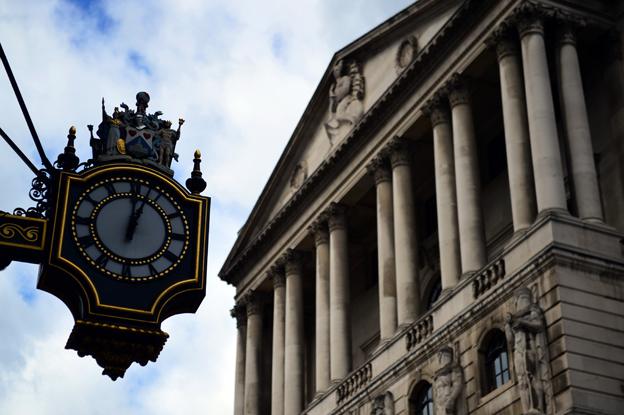The UK's current-account Achilles' heel
- Published
- comments

Whether the slowdown in growth in the rich West, led by the eurozone, and reinforced by a deceleration in China, will be permanent - as bond markets imply - or a phase, there will be significant implications for the UK.
As I mentioned last week, external, the Bank of England is now expected to defer any increase in its policy interest rate till at least next autumn.
The reason is that the Bank will need to maintain momentum in household consumption, business investment and construction, in the expected absence of strong demand for British goods and services from abroad.
Or to put it another way, domestic demand will become even more important to growth and making sure inflation does not fall too much further below its 2% target than it is today.
But stimulating domestic demand at this stage of the recovery brings risks - especially because the UK has a record current account deficit, or gap between the income it receives from the rest of the world and what it pays the rest of the world.
This deficit has now been more than 5% for three out of the last four quarters - and is wider than since records began in the 1950s.
Now the main cause of this troublesome deficit, which means that the highly indebted UK is still shipping in debt from abroad, is a pronounced fall in the income on foreign investments.
The Bank of England believes this drop in income is probably on assets held in the eurozone, and stems from the stagnation of that region. But it cannot be sure.
Even so, the main factor behind the overall deficit recently has not been the UK's intractable deficit in trade of services and goods - since this has been narrowing a bit. Our trade performance has improved, though not enough to take us to balance.
However, that narrowing looks unlikely to persist in coming weeks and months, if the Bank of England succeeds in maintaining strong-ish domestic demand for goods and services at a time of weak overseas demand.
In these circumstances, the trade deficit would widen.
And with Germany, Italy and France contracting or stagnating, the return on UK investments held there could fall further.
So the current account deficit, already worryingly large, could widen even more.
In those circumstances, the risk is of a sudden and precipitate fall in the value of sterling - what used to be called a sterling crisis - as investors panic about the ability of the UK to service rising indebtedness.
That of course would bring the danger of a sharp rise in inflation, and would force the Bank of England to raise interest rates much sooner and by much more than it would like.

A fall in sterling could cause a crisis for indebted households
You know what would follow from that - hundreds of thousands of households still burdened by huge debts accumulated during the boom years would struggle to keep up the payments. House prices would crash.
So here is the good news (sort of). The Bank of England has been probing our banks, with a new round of so-called stress tests, whose results will be due in December (after the EU stress-test results due this weekend), to make sure they have enough capital to absorb losses generated by surging unemployment and a 35% fall in house prices (and a 30% fall in commercial property prices).
Or to put it another way, the Bank's Financial Policy Committee has the heavy responsibility of limiting the damage to the banking system, and by extension to our prosperity, should the Monetary Policy Committee's duty to steer inflation close to 2% cause the formation of dangerous financial risks.
Which simply tells you how far the UK is from being a balanced economy, free from serious probability of boom, and that other thing.